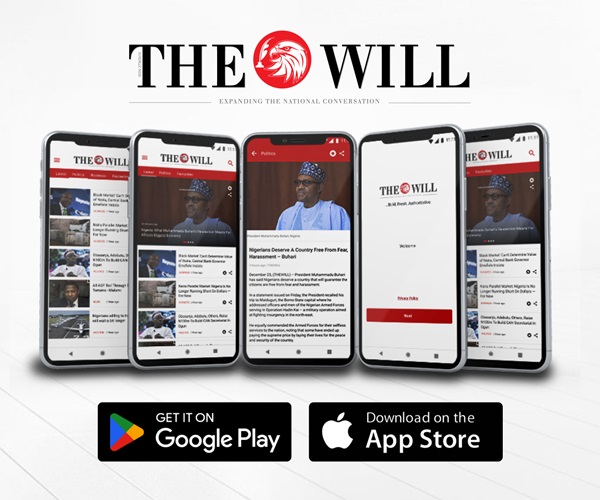October 27, (THEWILL) – For two consecutive Fridays this month, journalists mainly on the Arts beat in media houses in Lagos literarily had their hands full. And the source of that bountiful harvest (of cash prizes, laptops, Samsung Galaxy A 15 phones, plaques and multiple awards) was none other than pre-eminent gas company Nigeria Liquefied Natural Gas when it marked 20 years of consistent coverage of the Nigeria Prize for Literature and Science by the press. Date was Friday October 4 and venue was the very swank Marriott Hotel with its imposing presence on Joel Ogunnaike Street, GRA Ikeja.
A week later, on Friday October 11, many of the same journalists were again guests of NLNG at an equally towering Eko Hotel and Suites, Victoria Island for what has become routine since 2004.
Thanks to the press which NLNG celebrated exactly a week before at Ikeja, the prizes have become as much household names in Nigeria as the Nobel is to the rest of the world and they have risen in prestige making them the most contested literary and science competitions in Nigeria. Eager to give back to the press that has stood by it for all those years, the event at Marriot was to appreciate and celebrate them for their coverage. And celebrate them NLNG did in a grand way – with some surprises for the journalists caught completely unawares.
For most of the journalists invited, they had a fairly vague idea what the event was all about: “Celebrating The Voices of Impact: Nigeria Prizes @ 20.” But little did they know one of them would walk away with N5m at the end of the day. But by the time the keynote speaker, Funke Egbemode, former President of the Nigeria Guild of Editors, began her speech titled, “Celebrating Voices of Impact:
The NLNG Story,” some in the audience began to suspect there might be something in the offing for some of the journalists that have faithfully reported the gas company’s activities these past years.
“NLNG’s decision to institutionalise a prize in literature about 20 years ago was a move to save Nigeria’s voice in the global stage,” Egbemode said. “Yes, the country had produced the likes of Prof. Soyinka, the great Chinua Achebe, Niyi Osundare, Cyprian Ekwensi, Femi Osofisan, and the like; but the diminishing return was becoming evident at some point with a sharp dip in the quality of writing that was gracing the public sphere at a time in history. That quality has since improved, thanks to the impactful contribution of NLNG.”
Continuing, Egbemode said the NLNG Literature Prize journey “has not been a lone one, but one with other critical partners and contributors to the process that translates to social change and development which defines NLNG’s interventions in the society,” insisting that “one of such partners has been the media.”
“Today, we pay glowing tributes to everyone who works to bring this impact to our country and the businesses that operate therein. We honour and celebrate journalists and media professionals who have walked this road of operational excellence with NLNG over the past 35 years and 20 years of institutionalising the literature prize among other prizes.”
Along with Egbemode’s speech was a panel discussion on how journalists can leverage on AI in “archiving and documenting” so as to keep track of their publications. The discussants were Tolu Ogunlesi, social media handler for former President Muhammadu Buhari, Tayo Fagbunle, Editor of BusinessDay. The discussion was moderated by Funke Treasure, journalist who also doubled as the compere. Besides keeping record of their reports, there was also the need, Fagbunle suggested, for journalists to “digitise and monetize,” especially in this digital age.
As NLNG events go, there were the musical interludes as well, plus a light comedy performance by Laugh Doctor who did not disappoint at all, considering that he lacks the clout and reach of the more recognised stand-up comics in town. One of his gigs that got his audience in stitches that morning was of a band of intrepid robbers who marked out a certain apartment in 1004 VI for operation. The elevator was inoperable so the hoodlums had to hightail it up a long flight of stairs. By the time they got to their target, they were gasping for breath. Fatigued by lumbering up the interminable stairway, they had to beg for ice-cold water from the intended victim when they finally got to his apartment. Apparently, the hard-eyed criminals had been humbled by the great trek to reach their destination and so had forgotten their initial objective of a surprise raid. The water? To revive their flagging spirit.
Of course, there was a more serious matter at hand when Anne-Marie Palmer Ikuku, Manager, Corporate Communications and Public Affairs of NLNG, sidled up the stage to announce that there were prizes for journalists who had distinguished themselves in covering the Literature and Science Prizes from inception. It was a one-off thing though, she said. Still it was in recognition of the reporters’ contribution to promoting the gas company. Earlier in his welcome address, Odeh had let on that the company would be starting off and bankrolling a prize for Energy Reporter of the year with the DAME Award, a first of its kind in the Diamond Award for Media Excellence.
Before announcing the overall winner, Palmer-Ikuku called out Terh Agbedeh as “the most consistent,” Gabriel Akinadewo “the most versatile,” Chidinma Agwu “the most punctual” and Sopuruchi Onwuka “the most engaging.” Of course the reporters were caught off guard, but none more so than Prisca Sam- Duru of Vanguard when Kadaria Ahmed declared to all that she was the winner of the major prize for writing the best stories and the most consistent in reporting the Literature Prize in 20 years.
With her right hand to her chest, temples throbbing and a heart beating correspondingly, Prisca expressed disbelief after Ahmed declared her winner of a competition not contested for. Neither were the journalists, including Prisca herself, aware that any such competition had even commenced. It was a total surprise package NLNG kept from the press until that day in question.
Which mostly accounted for Prisca’s stunned disbelief. “Am I dreaming?” She said moments after Ahmed’s announcement. No, it was true, and the audience cheered her on to the stage where the General
Manager External Relations of NLNG, Andy Odeh presented her with a plaque, a cheque for N5m and a laptop for being not only the most consistent in covering the Nigeria Prize since inception in 2004, but the best one with the best reportage, “beyond mere press releases,” according to the judges, composed of communications guru, Taiwo Obe as chairman, Chido Nwakanma and Ahmed as members.
As if living up to her reputation as the most consistent journalist in reporting the Literature Prize, Prisca herself was at Eko Hotel & Suites exactly a week later to cover the mother of all prizes sponsored by NLNG.
By now, Nigerians and the rest of the world are pretty much aware that Olubunmi Familoni won this year’s competition for Children’s Literature with his entry ‘The Road Does not End’ out of three shortlisted candidates. He went home that night with a $100, 000 cash prize.
Managing Director and Chief Executive Officer of NLNG limited, Philip Mshelbila, praised the finalists for writing stories that symbolize children as future, synchronising with the theme of the gala night “The Future.”
He also reemphasised NLNG’s drive for excellence which is the focal point of the competition from the get-go.
But a thoroughgoing gas man, he couldn’t resist pitching in a word or two about the company he helms. “In NLNG, we supported the declaration of the Decade of Gas, which the Federal Government launched in 2021 to help Nigeria achieve industrialisation, economic prosperity, and tackle energy poverty by using gas as an enabler which aligns with NLNG’s vision to be a globally competitive LNG company helping to build a better Nigeria.
I have expressed optimism in several fora that the Decade of Gas policy would enable the country to catch up with the industrialised countries of the world if successfully implemented as planned, while at the same time decarbonizing our ecosystem.”
In his acceptance speech, the star of the night Familoni, and like previous winners, commended the gas company for “creating the annual prize platform which has elevated literature and empowered many writers.” With the prestigious $100, 000 award, Familoni is the latest addition to a constellation of dozens of Nigerian-born writers who have caught the eyes of successive judges in a literary competition that has been unequalled so far in the country.
Michael Jimoh is a Nigerian journalist with many years experience in print media. He is currently a Special Correspondent with THEWILL.







